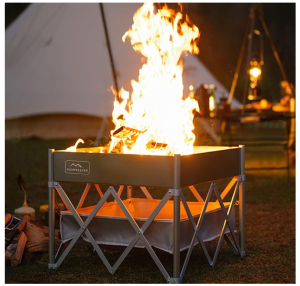
Mastering the Art of Outdoor Trip Planning

Boarding on an outdoor adventure can be exhilarating, but a well-thought-out outdoor trip planning strategy is the key to transforming your journey into an unforgettable experience. Whether you’re a seasoned explorer or a novice adventurer, understanding the nuances of trip planning can make the difference between a chaotic escapade and a seamless exploration of nature’s wonders.
The Foundation of Outdoor Trip Planning
Trip planning is not just about picking a destination; it’s a holistic approach to crafting an experience that aligns with your preferences, ensures safety, and maximizes the enjoyment of every moment. The first step in this journey is defining your objectives. Whenever, you are seeking a challenging hike, a serene camping experience, or an adrenaline-pumping rafting adventure? Understanding your goals sets the stage for the rest of your planning.
Choosing the Perfect Destination
Selecting the right destination is paramount in trip planning. Consider factors like weather conditions, accessibility, and the activities available. Whether it’s the rugged terrains of a national park, the tranquility of a lakeside retreat, or the coastal charm of a beach getaway, the destination forms the backdrop for your adventure. Research thoroughly, read reviews, and consult fellow outdoor enthusiasts to make an informed decision.
Crafting a Detailed Itinerary
An effective trip planning strategy involves creating a comprehensive itinerary. Outline the activities you wish to undertake, allocate time for each, and include contingency plans for unexpected changes. Consider factors such as travel time, breaks, and the duration of each activity to balance adventure and relaxation.
Packing Essentials for Outdoor Adventures
Packing is a crucial aspect of trip planning. Make a checklist that includes weather-appropriate clothing, sturdy footwear, camping gear, navigation tools, first aid supplies, and any specific equipment required for your chosen activities. Prioritize lightweight and versatile items to keep your backpack manageable while ensuring you have everything you need for a comfortable journey.
Navigating the Challenges of Outdoor Exploration
Outdoor adventures often come with challenges; part of effective trip planning is anticipating and preparing for them. Familiarize yourself with the terrain, weather patterns, and potential hazards of your chosen destination. Firstly, equip yourself with navigation tools like maps and GPS devices, and educate yourself on basic survival skills. Being well-prepared enhances safety and allows you to focus on enjoying the beauty of nature.
Considering Environmental Impact
Responsible outdoor trip planning includes a commitment to minimizing your environmental impact. Adhere to Leave No Trace principles by packing out all waste, respecting wildlife, and staying on designated trails. Undoubtedly, choose eco-friendly gear and practices to ensure that your outdoor adventures contribute to preserving natural spaces.
Building Flexibility into Your Plans
While a detailed itinerary is essential, effective trip planning also embraces flexibility. Nature is unpredictable, and unforeseen circumstances may arise. Build buffer time into your schedule, have contingency plans, and be open to adjusting your goals based on real-time conditions. Moreover, this adaptability ensures a stress-free and enjoyable outdoor experience.
The Importance of Safety Measures
Prioritizing safety is non-negotiable in trip planning. Inform someone trustworthy about your itinerary, carry emergency communication devices, and stay updated on weather forecasts. Be mindful of your physical limitations and the skill levels required for chosen activities. In the meantime, enlist the services of experienced guides or instructors for challenging adventures if needed.
Connecting with Local Resources
Local insights can enhance your trip planning significantly. Engage with local communities, seek advice from experienced guides, and explore resources like visitor centers or online forums. Therefore, local knowledge can provide valuable tips, hidden gems, and a deeper understanding of the culture and environment you are exploring.
Reflecting on the Outdoor Experience
As your outdoor adventure concludes, take time to reflect on the experience. Document your journey through photos or a travel journal, sharing the highlights and challenges. However, this reflection serves as a personal keepsake and contributes to continuous improvement in your trip planning skills.
In conclusion
Mastering the art of outdoor trip planning is a transformative skill that elevates your adventures from ordinary to extraordinary. By carefully considering every aspect, from destination selection to safety measures, you ensure a seamless and enjoyable exploration of the great outdoors. At last, hold the planning process, and let the wilderness become the canvas for your next unforgettable adventure.
Recent Posts




Heat up your outdoor gatherings with our wood burning fire pit with heat shield


Mastering the Art of Outdoor Trip Planning
Recent Posts




Heat up your outdoor gatherings with our wood burning fire pit with heat shield






Heat up your outdoor gatherings with our wood burning fire pit with heat shield



